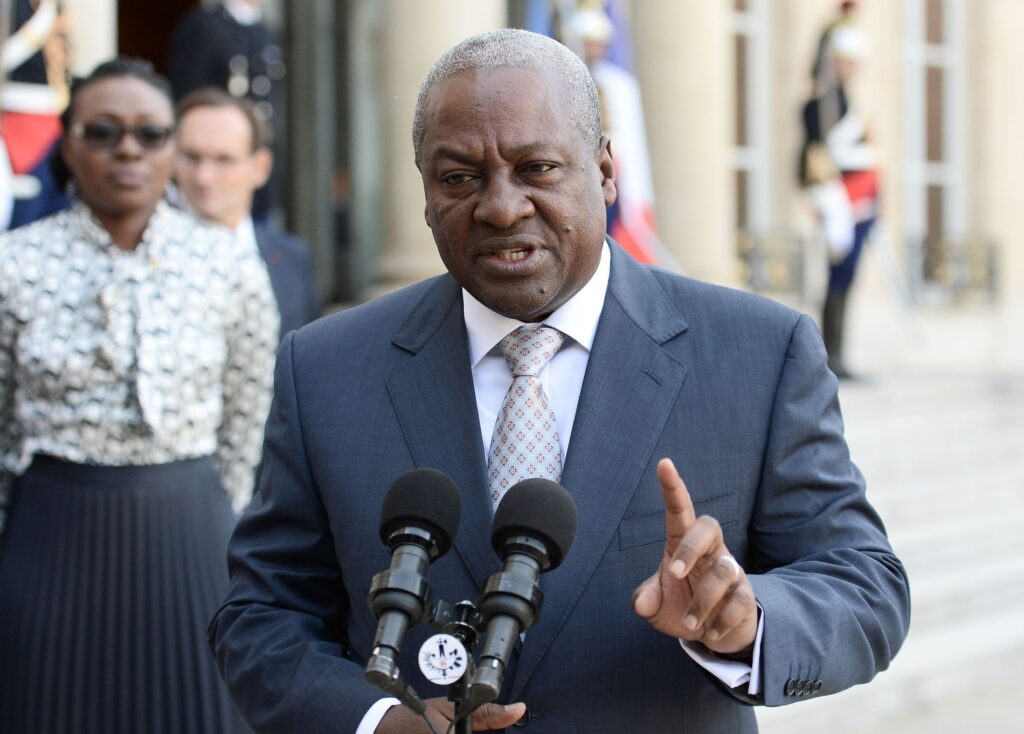Former President John Dramani Mahama has thrown down the gauntlet, casting doubt on the feasibility and realism of the government’s ambitious Agenda 111 project. The initiative, which aims to construct 111 district hospitals across Ghana within a year, has been hailed by the ruling party as a game-changer for healthcare infrastructure. However, Mahama’s skepticism has reignited debates on the practicality and sustainability of the project, raising questions about its potential impact on the nation’s healthcare sector.
The genesis of the controversy can be traced back to the announcement of the Agenda 111 project by President Nana Akufo-Addo in his State of the Nation Address. Touted as a flagship initiative of the government, the project seeks to address longstanding deficiencies in Ghana’s healthcare system by providing access to quality medical care in underserved communities.
However, Former President Mahama wasted no time in expressing reservations about the feasibility of the project, describing it as “overly ambitious” and “not realistic” given the logistical challenges and resource constraints facing the country. In a series of public statements and interviews, Mahama questioned the government’s capacity to deliver on its lofty promises within the proposed timeframe, citing concerns about funding, implementation capacity, and sustainability.
“The Agenda 111 project is commendable in its ambition, but the reality is that it may be too ambitious for our current circumstances,” remarked Mahama. “Constructing 111 district hospitals in just one year is a Herculean task that requires meticulous planning, adequate resources, and strong implementation capacity. Without these essential components, the project risks being a mere political gimmick rather than a meaningful investment in healthcare infrastructure.”
Mahama’s skepticism has struck a chord with critics and skeptics, who argue that the government’s emphasis on quantity over quality could compromise the integrity and sustainability of the healthcare facilities being constructed. They point to past instances of rushed infrastructure projects that have fallen short of expectations, citing instances of poor construction, inadequate staffing, and lack of essential medical equipment and supplies.
Furthermore, concerns have been raised about the funding mechanism for the Agenda 111 project, with some questioning the government’s ability to mobilize the necessary resources to see it through to completion. Despite assurances from government officials that funding has been secured through a combination of domestic and external sources, skeptics remain wary of the potential financial risks and implications of such a massive undertaking.
In response to the criticism, government officials have sought to reassure the public of their commitment to the Agenda 111 project, emphasizing the importance of expanding access to healthcare services for all Ghanaians. They have also highlighted the potential economic benefits of the project, including job creation, infrastructure development, and improved health outcomes.
However, skeptics remain unconvinced, arguing that the government’s track record on healthcare infrastructure leaves much to be desired. They point to persistent challenges such as inadequate staffing, medical equipment shortages, and poor maintenance of existing healthcare facilities as evidence of the need for a more nuanced and sustainable approach to healthcare development.
As the debate over the Agenda 111 project continues to unfold, Ghana finds itself at a crossroads, grappling with complex questions of governance, development, and public health. Former President John Mahama’s critique serves as a timely reminder of the importance of pragmatism and realism in policymaking, particularly in the context of ambitious initiatives with far-reaching implications.
Whether the government heeds Mahama’s warnings and adopts a more cautious approach to the implementation of the Agenda 111 project remains to be seen. However, one thing is clear: the success or failure of the project will have profound implications for the future of healthcare delivery in Ghana and the well-being of its citizens.
story filed by: Nana kwaku Duah





